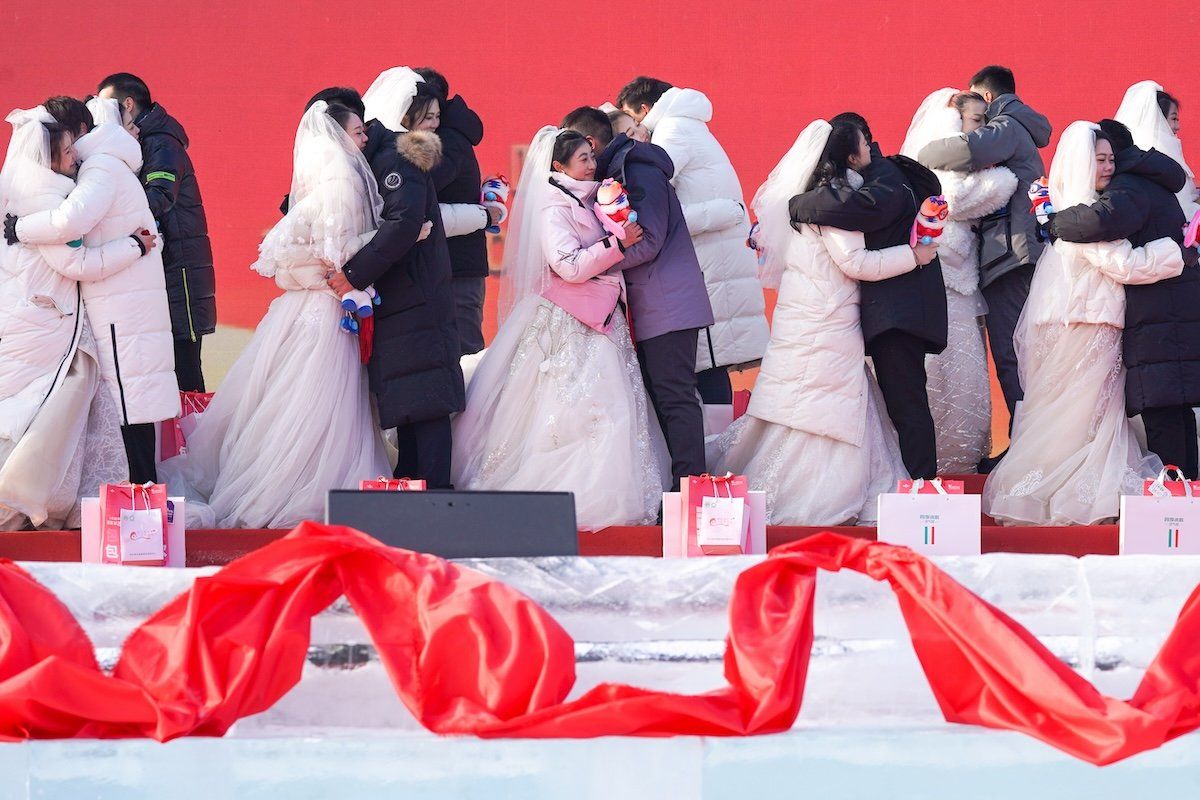HARD NUMBERS: Chinese marriages fall, Romanian president resigns, Bangladesh police arrest hundreds, Palestinian Authority may scrap “martyrs’ payments.”
20: The number of marriages in China fell to 6.1 million last year, 20% lower than in 2023 and down by more than 50% since 2013. The marital malaise is part of a bigger demographic crisis facing China. Although it boasts the world’s second-largest population, at 1.4 billion people, the country’s population is declining. Until 2015, the state enforced a “one child” policy to avoid urban overcrowding. But since then high costs of child care and education have stymied government efforts to encourage people to have children.
6: At least six people were detained Monday during celebratory demonstrations in Bucharest following the resignation of Romanian President Klaus Iohannis. Iohannis has been under pressure to step down since the annulment last December of the election to pick his successor after a social media campaign allegedly organized by Russia helped a little-known far-right candidate to win. Although Iohannis’ term has ended, he was trying to stay in power until the rerun election in May. This triggered criticism and protests over the perception that, on top of involvement in the unpopular decision to scrap the election results, he was acting unconstitutionally by exceeding his term.
1,300: Police in Bangladesh have arrested at least 1,300 supporters of former PM Sheikh Hasina, who was ousted in mass protests last August that were touched off by a backlash against certain hiring quotas in the civil service. Since then the interim government has struggled to tamp down tensions between supporters of Hasina, a strong female leader who came to power in 2009, and her opponents. Hasina herself is currently in exile in India.
20: The Palestinian Authority, which enjoys limited self-rule in the West Bank, has reportedly signaled to the Trump administration that it could scrap its controversial “martyrs’ payments.” Under this 20-year-old policy, the PA gives financial support to the families of Palestinians killed or wounded while carrying out acts of violence against Israel or who are imprisoned by Israel. The PA has often framed the policy as a social welfare measure under conditions of occupation, while critics say that it’s a “pay to slay” policy that simply encourages more violence and terrorism.
